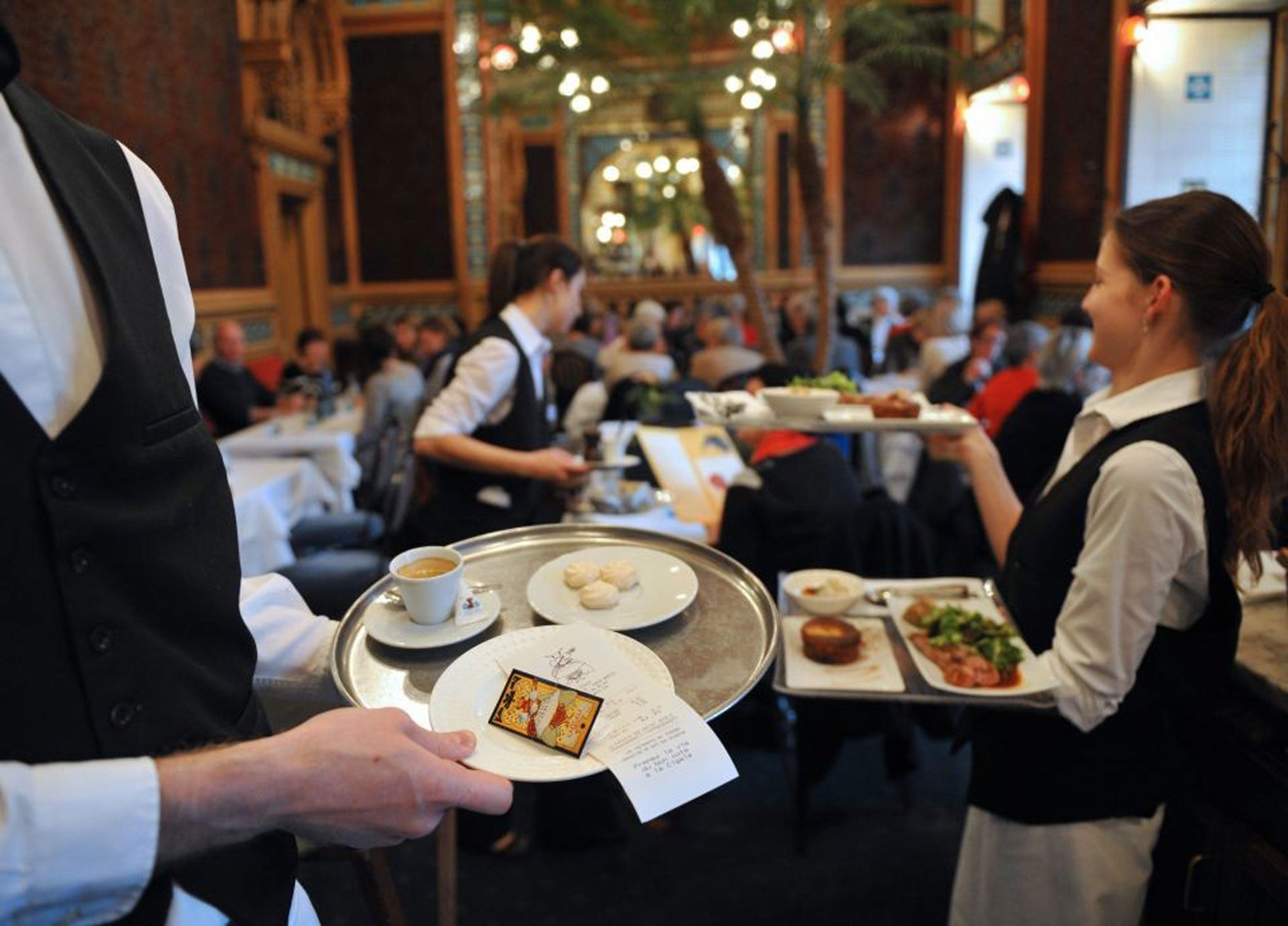It’s not just Côte and Bill’s who are guilty of taking their staffs’ tips
Although underpaid waiters deserve to be properly remunerated for the work they do – not arbitrarily by customers whose generosity depends on their mood

Just when middle-class people thought they were safe. Just when they thought they had found a socially acceptable chain restaurant that serves hummus in pots, burgers on boards and good-value minute steaks by candlelight, it has all gone horribly wrong.
It turns out that Côte has been hiding a dark secret underneath its half-chargrilled Breton chickens, while Bill’s might have been serving up its macaroni cheese in a rustic tin dish with a side of nastiness. Both restaurants have been accused of pocketing the whole 12.5 per cent service charge that is automatically added to the bill, rather than handing it to their staff as tips. Bill’s denies the claim.
Worse, Côte, which has 72 brasseries across the UK and turned over almost £65m in 2014, reportedly tells its staff to inform any customers who ask that tips are shared out between workers. Bill’s, which has 67 restaurants and made £7.7m profit last year, reportedly does the same. They argue that the extra money allows them to pay staff above the minimum wage – but many of them would rather get that and get their tips for exceptional service, too. And most diners would surely rather know where their extra cash is actually going.
It’s no surprise that two high-street restaurants should – despite their chalkboards, artisan aprons and best efforts to look folksy and individual – actually be all about the bottom line. Soon we’ll discover the people who stick those quirky labels on Pret sandwiches and Innocent smoothies are not as happy in their work as their funny little messages make them out to be.
Indeed, Côte and Bill’s are not alone in the practice of hustling money left specifically for service into the general coffer. At Pizza Express, 8 per cent of a card tip is taken by the company; Giraffe takes 10 per cent, as does Café Rouge. And this week it was revealed that at Las Iguanas, table staff are required to pay employers 3 per cent (5.5 per cent in London) of table sales. So if a waiter serves £1,000-worth of food to a table, they have to pay £30 back to the restaurant in cash at the end of the night. If they don’t get the tips to cover it, they must make up the difference out of their wages. One imagines the chief executive and other directors do not take the same attitude to their annual bonuses.
Underpaid waiting staff deserve to be properly remunerated for the work they do – not arbitrarily by customers whose generosity depends on their mood, how long it is until pay day, whether there’s someone in the group who “doesn’t believe” in tipping (we all know one) or how much change they have in their wallet. The hallmark of good service is that one barely notices it; it makes little sense leaving it up to customers to decide what it’s worth.
The tipping debate highlights how blind many of us still are the practice. Forget worrying over how much to pay and how to pay it, most of the time we don’t even know what we’re paying the extra for. And restaurants are (the social awkwardness of bill-splitting aside) the easy one – tip around 15 per cent, more if you’re in a group or have had exceptional service, and do it in cash if you can.
What about elsewhere? It’s the definition of a first-world problem, but the question of when to tip still reduces me to a fumbling child. Taxis are a must – but should you also tip an Uber driver though no cash changes hands? You’re supposed to tip your hairdresser but I’m never quite sure why, given the huge bill. Handymen, porters – the list is endless. While the rule of thumb is to be gracious to those serving you, the pitfalls are endless. There should be an app that tells you who and what to tip.
Perhaps America has the answer. Tipping across the Atlantic is mandatory, but only because most waiting staff are paid so pitifully. It’s 20 per cent, or expect a scalding coffee in your lap. But more states are bringing in compulsory minimum wages, so some restaurants are experimenting with abandoning tips altogether. They have simply put their prices up by 20 per cent to cover wages.
That seems like a good solution. It may mean that waiting staff are less inclined to do a good job, but the knowledge that everyone – from front of staff to kitchen porter – is receiving a fair wage probably makes for a more unified workplace.
Join our commenting forum
Join thought-provoking conversations, follow other Independent readers and see their replies
0Comments